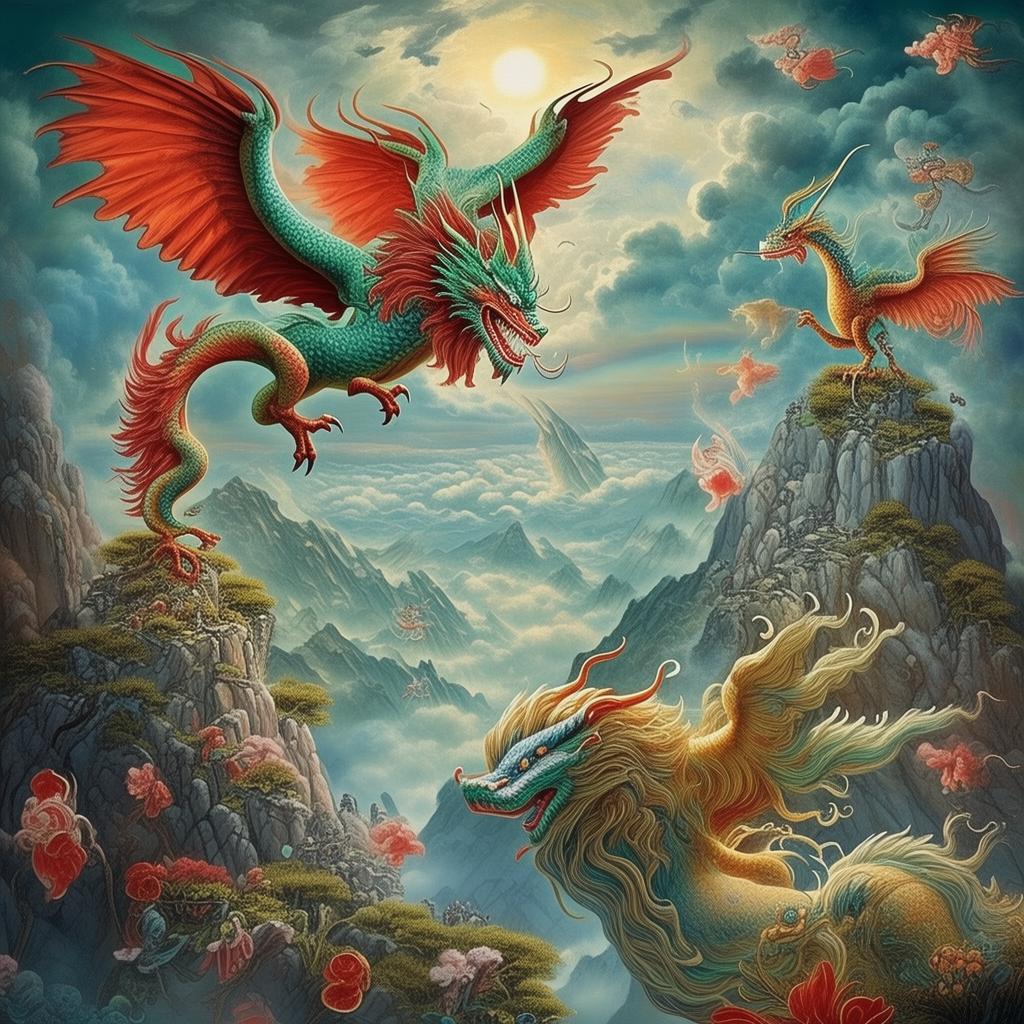The Reflection of the Forsaken: A Tale of Narcissism and Redemption
In the ancient kingdom of Aetheria, where the sky was painted with hues of indigo and the ground shimmered with the magic of the ancient, there lived a young man named Elysium. He was the son of the Mirror's Master, a sorcerer who held the power to control the reflection of the self. The Mirror's Master, known as the Reflector, was revered and feared alike for his ability to grant visions of the future and reveal the truth behind the veils of deception.
Elysium, however, was not like his father. He was vain, obsessed with his own beauty and the admiration he received from all who beheld him. He spent his days in the opulent palace, surrounded by the finest of everything, yet he felt hollow, as though something vital was missing from his life. The Reflector, though, knew what Elysium truly desired: the power to control his own reflection, to be the master of his own destiny.
One fateful day, the Reflector revealed to Elysium a hidden chamber within the palace, a place where the true essence of the Mirror's magic lay. It was here that Elysium discovered the ancient artifact known as the Narcissus, a mirror that granted its user the power to become the master of their own reflection. The Reflector warned Elysium of the dangers of such power, for with it came the risk of becoming trapped in one's own delusions.
Elysium, driven by his narcissistic tendencies, was unable to resist the allure of the Narcissus. He touched the artifact, and with a blinding flash of light, he was transformed into the very essence of his own reflection. The world around him blurred, and he found himself standing in a realm of his own creation, where he was the only being that existed. He was the Narcissus, the ultimate master of self-deception.

Days turned into weeks, and Elysium reveled in his newfound power. He could reshape his own image, create the perfect version of himself, and be the object of his own admiration. But as time passed, he began to notice a strange phenomenon. The realm of his reflection became more and more distorted, and the world outside seemed to fade away. He realized that he was slowly being consumed by his own narcissism, trapped in an eternal loop of self-gratification.
One day, a figure appeared before Elysium, a being of light and wisdom. It was the spirit of Narcissus, the original user of the artifact, who had been cursed to roam the world for eternity, forever trapped in his own reflection. Narcissus spoke to Elysium, warning him of the consequences of his actions and the impending doom that awaited the kingdom of Aetheria if he did not find a way to break the curse.
Elysium, filled with remorse and a newfound sense of purpose, realized that he must atone for his narcissistic ways. He knew that the only way to break the curse was to face the truth about himself and to embrace his flaws. With the help of Narcissus, he began a journey back to the world of Aetheria, determined to undo the damage he had caused.
As Elysium returned to the land of the living, he found the kingdom in disarray. The people were suffering under the oppressive rule of his narcissistic ways, and the Reflector was aging rapidly, his powers waning. With the Narcissus in his possession, Elysium had the power to restore balance to the kingdom, but at a great personal cost.
He confronted his father, the Reflector, who was now a mere shadow of his former self. The Reflector, understanding the depth of Elysium's transformation, agreed to help him. Together, they worked to unravel the curse, using the Narcissus to break the cycle of narcissism that had consumed Elysium and to heal the kingdom.
The journey was arduous, filled with trials and tribulations, but Elysium pressed on. He learned to accept his flaws, to love and cherish his imperfections, and to embrace the truth about himself. As he did so, the Narcissus began to lose its power, and the distortions in his reflection began to fade.
In the end, Elysium faced his own reflection, not as the Narcissus, but as himself. He saw the man he had become, the man he was meant to be. With a newfound sense of humility and self-awareness, he released the Narcissus, allowing its power to be used for the greater good of the kingdom.
The Reflector, now rejuvenated, returned to his place as the guardian of the Mirror's magic, and Elysium, the once vain prince, became the savior of Aetheria. The kingdom flourished once more, and Elysium found true happiness in the love and respect of his people, knowing that he had overcome his narcissistic nature and had become a better man for it.
In the end, the reflection of the forsaken became a tale of redemption, a story that would be told for generations, a reminder that even the most self-absorbed among us can find a path to self-improvement and a life of purpose.
✨ Original Statement ✨
All articles published on this website (including but not limited to text, images, videos, and other content) are original or authorized for reposting and are protected by relevant laws. Without the explicit written permission of this website, no individual or organization may copy, modify, repost, or use the content for commercial purposes.
If you need to quote or cooperate, please contact this site for authorization. We reserve the right to pursue legal responsibility for any unauthorized use.
Hereby declared.









